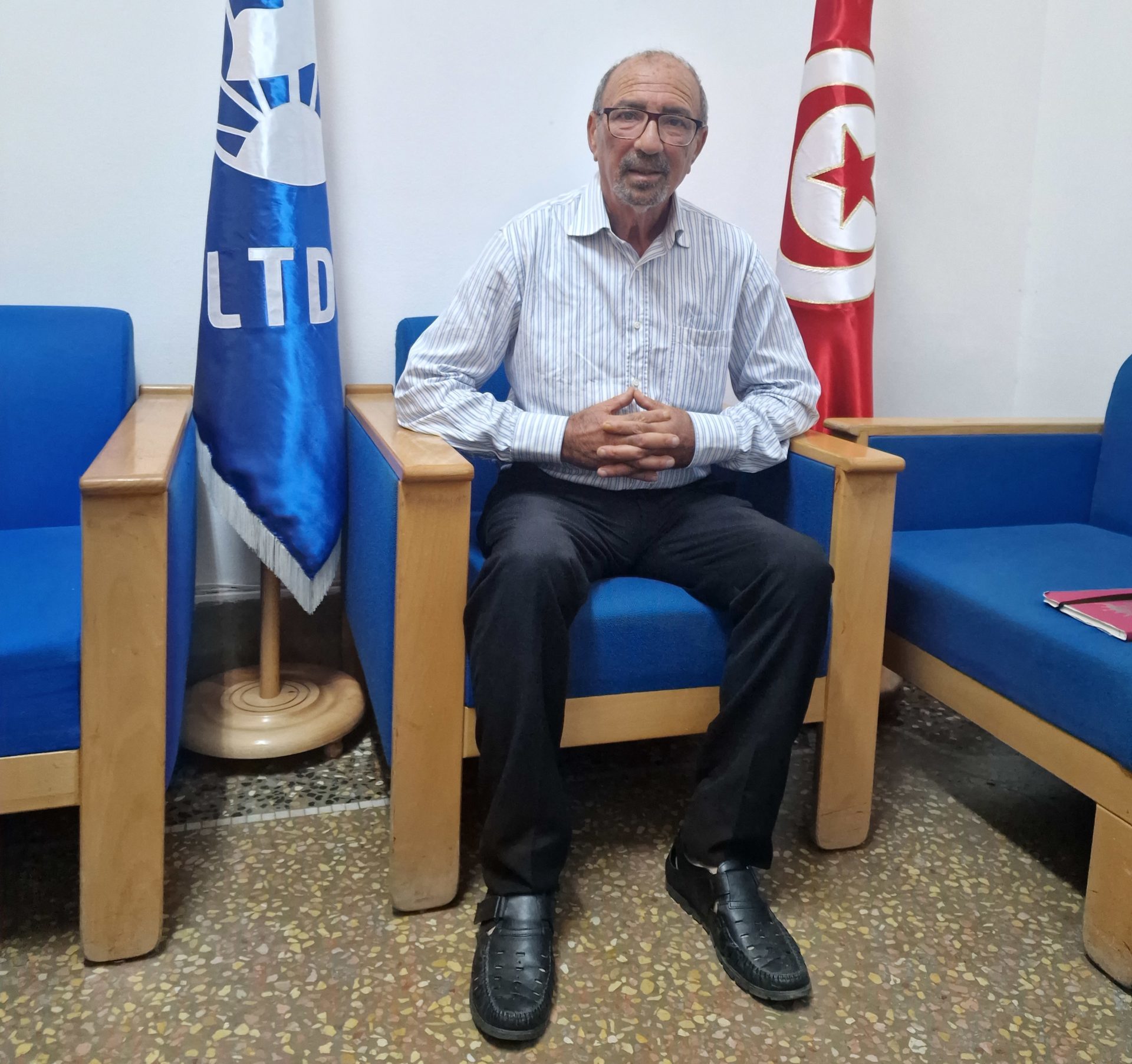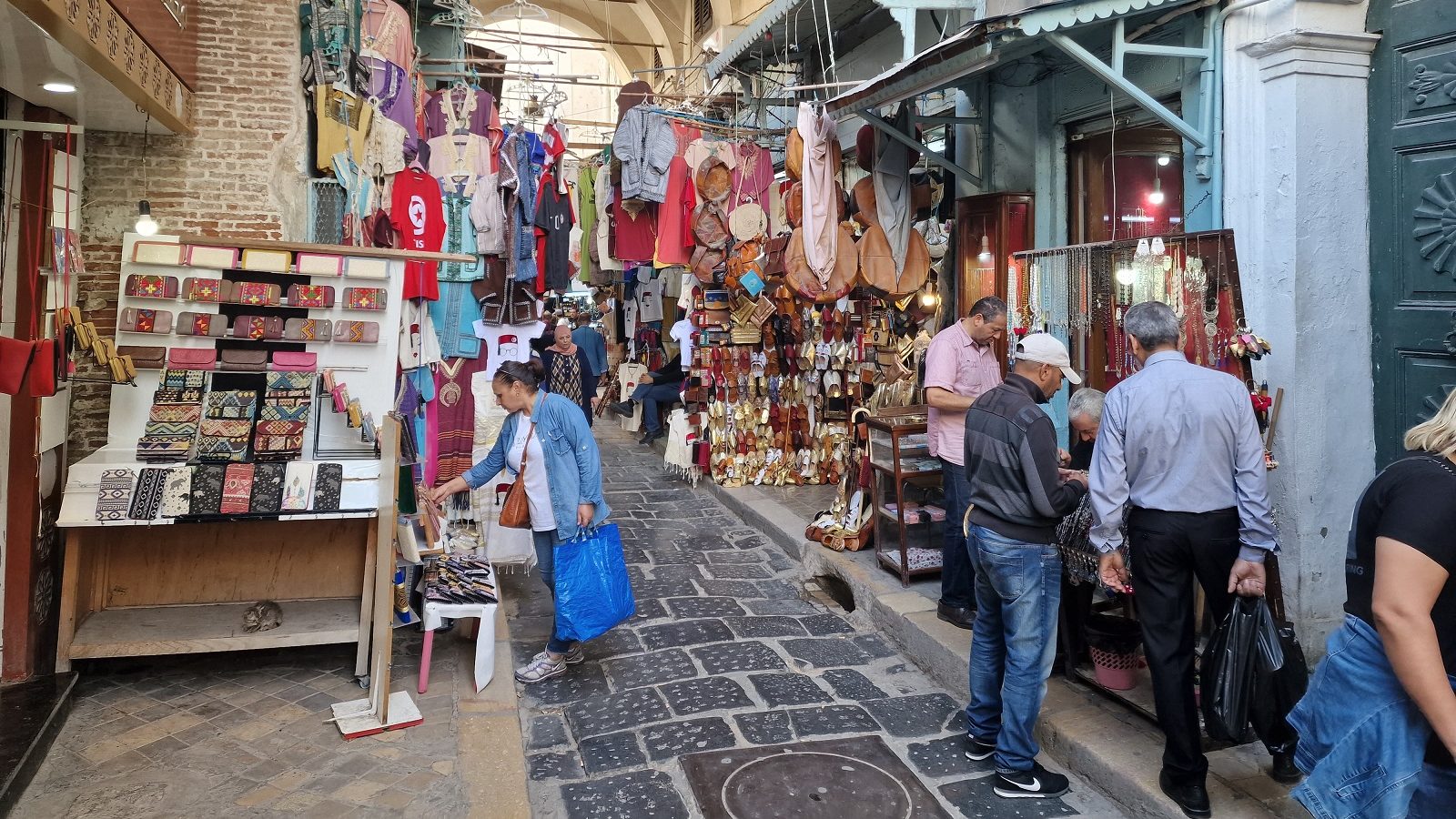Escaping Tunisia
After the optimism of the Arab Spring, Tunisia’s youth are now trying to make the perilous journey across the Mediterranean to Europe for a better life
[Tunis] A decade after the Arab Spring, the country where it all started, Tunisia, is facing a mass exodus of its youth due to the deteriorating economic and political situation in the country, according to activists there.
“We spent 10 years after the revolution in a very difficult situation. Economically, there is a lot of unemployment and a lot of social problems,” Jamel Msallem, president of the Tunisian Human Rights League, told The Media Line.

Tunisian Human Rights League President Jamel Msallem. (Owen Holdaway/The Media Line)
“Therefore, young people no longer have a vision of the future. And that is why immigration to Europe has become urgent for them,” he added.
Tunisia, particularly its capital Tunis, has a relatively educated and successful workforce, and until recently was seen as a beacon of progress within an otherwise turbulent region. It was also one of the most popular tourist destinations in the region. However, as Tunisia’s economy deteriorated – with an 18% unemployment rate exacerbated by the impact of COVID-19 – migration attempts have soared.
“Many students and university graduates find themselves unemployed. We have about 225,000 laid-off workers who are unemployed and cannot find work,” Prof. Ridha Gouia, from Avicenne Private Business School in Tunis, tells The Media Line.

Prof. Ridha Gouia, from the Avicenne Private Business School, Tunis. (Owen Holdaway/The Media Line)
In addition, the political situation deteriorated last July when President Kais Saied suspended parliament and took on sweeping powers, raising fears of democratic backsliding.
The professor added, “It is for this reason many are trying to emigrate and see Europe as a place to live and find work and better opportunities.”
Although figures are hard to come by, the Tunisian Human Rights League has documented more and more people wanting to leave.
This holiday season, give to:
Truth and understanding
The Media Line's intrepid correspondents are in Israel, Gaza, Lebanon, Syria and Pakistan providing first-person reporting.
They all said they cover it.
We see it.
We report with just one agenda: the truth.


“We have estimates of around 9,000 people trying to leave Tunisia by boats this year,” Msallem says, adding “Many, many of these lives have been lost on the [Mediterranean] sea this year, with their bodies washing ashore.”
The journey to Europe had recently been glamorized with Tunisian social media influencers posting photos and videos of people making the crossing against the backdrop of a calm blue sea. Experts warn that this could inspire others to make the dangerous crossing.
“We don’t even know the exact number of deaths. This is the reason [our organization] always encourages them to travel [to Europe] via legal migration,” Msallem said.
The legal routes for Tunisians to emigrate to Europe are declining. France recently slashed visas given to Tunisians by 30%, and to Algerians and Moroccans by half, accusing the countries of failing to cooperate over the return of their nationals who are in France illegally. This journey across the Mediterranean is known locally as the “harka” – a reference to the figurative “burning” of borders and the destruction of personal documents before undertaking the perilous crossing – and has become more popular.
“The situation here for a lot of people is hopeless. … They don’t trust the government or the state,” Msallem explains, adding “and the war in Ukraine has made matters worse.”
The disruption of wheat supplies and rising fuel prices caused by the war in Ukraine has worsened the economic situation in Tunisia and cut off some of the traditional legal routes that Tunisians used to emigrate to Europe.
“Since the start of the Russo-Ukrainian War, we found that the networks Tunisians used to emigrate have changed. … We have several Tunisian people who have been arrested in Serbia, and they had all the legal documents – a visa, the COVID-19 pass – but they have been arrested there and their visas revoked,” Msallem says.
The situation has also become a lot more difficult for Tunisians trying to reach Italy since the election of Giorgia Meloni’s right-wing government, which has also refused access to migrants from North Africa.
“There is a German boat currently, with a lot of Tunisian people, that the Italian government is refusing to allow to port in [southern] Italy,” Msallem states, adding, “and the humanitarian situation on board this vessel is very bad.”
With the civil war continuing in neighboring Libya, and many countries to the south facing acute economic and political turmoil, Tunisia was seen as a relatively stable and developed country, attracting migrants from the surrounding region who sought a better life.
But this has changed.
“I came here from Congo to study,” Toussaint, a Congolese student in Tunis, tells The Media Line. “I want to return home; I see more opportunities for me there than here.”
He adds, however, “I know some people who come here and then think they can get a better life in Europe. I think this is the wrong mentality. [The sea journey] is a very risky way to go to Europe. … They think if they go to Europe, they will have a better life, but this is not always true.”

